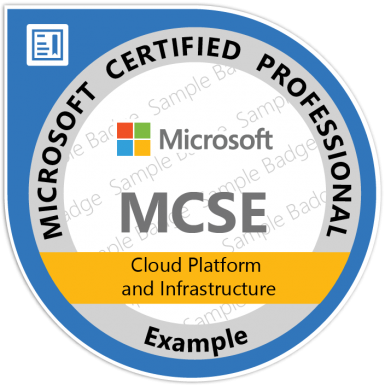
Become a DevOps Engineer in Nepal (2024) with TechAxis Training
A DevOps engineer is an IT generalist who should have a wide-ranging knowledge of both development and operations, including coding, infrastructure management, system administration, and DevOps toolchains. The role calls for someone who has relevant hard and soft skills to overcome the traditional barriers between software development, quality assurance, testing, and IT operations teams and foster a collaborative, holistic environment. DevOps engineers assess current systems and processes and develop ways to improve them, build and set up new development tools and infrastructure, test and examine code written by others analyze results, etc. In short, DevOps engineers build, test, and maintain infrastructure and tools so that software can be developed and released. So, as technology keeps changing, the demand for DevOps experts is growing. Companies see how DevOps can help them stay competitive and make their customers happy.
That’s why if you’re an IT graduate looking for a career, specializing in DevOps is a smart choice. You’ll be in demand, and your skills will be a valuable asset in today’s tech-focused world. DevOps professionals are in high demand worldwide. According to the DevOps Institute’s 2020 Upskilling report, 83% of respondents reported difficulty finding qualified DevOps talent. This high demand translates into excellent career prospects for IT graduates. In this blog, we are going to explore the path of becoming a DevOps Engineer in Nepal and the opportunities awaiting aspiring professionals. And also, choosing the best IT training institute for your DevOps training.
Why Become a DevOps Engineer in Nepal?
There are plenty of reasons to pursue a career as a DevOps engineer in Nepal. Firstly, there are endless possibilities for you to learn and develop. A DevOps career allows you to deploy a broad set of skills that you are constantly refining due to the new challenges you solve every day. Choosing to be a DevOps engineer opens up a career filled with challenges and rewards. The field has lots of jobs and challenges to keep you engaged and learning. What makes it even more appealing is the chance to make a tangible impact on the world. Secondly, this field offers you high salaries, ultimately, providing financial stability. The estimated salary for a DevOps Engineer is NPR 720,000 per year in Nepal src-glassdoor.com
Additionally, DevOps engineers in Nepal work on exciting projects in high demand across various industries, allowing them to contribute meaningfully to technological advancements. Further, choosing a DevOps career means choosing flexibility. You get to choose your work environment yourself either remote work options or collaborating internationally. Also, DevOps engineers get to work with the most recent and advanced tools and technologies. This creates an exciting work environment. Overall, DevOps engineering in Nepal is a dynamic and rewarding choice for individuals passionate about technology and innovation.
Essential Skills for DevOps Engineers
The essential skills required for DevOps Engineers can be categorized into two:
1)Technical skills:
- Linux Fundamentals and Scripting: As more and more companies prefer hosting their applications on Linux, skills in handling a Linux operating system have become crucial for a DevOps engineer. You also need to master configuration management tools like Puppet, Chef, and Ansible, which will equip you with skills like file handling, text processing, system administration, process management, and network. Linux may not be user-friendly, but it is a highly secure Operating system, which is why many organizations prefer it.
- Networking Skills: Networking is the foundation of DevOps, and if you do not have the right networking skills, you may even fail in DevOps. Networking skills are critical for DevOps professionals as they are responsible for managing the infrastructure, ensuring seamless communication between different system components, securing the system, and managing cloud networks.
- Coding and Scripting: Coding and scripting are two important skills that DevOps engineers should possess. Python, Ruby, Python, Java, Javascript, PHP, Bash, Shell, and Node.js are among the most recommended programming/scripting languages.
- Cloud Skills: Cloud and DevOps are always together. The efficiency of one is directly dependent on and influenced by the other. While DevOps methodology drives a process, the cloud enables that process by providing it with the necessary platform to perform tests, deploy, and release code. Cloud enables DevOps automation with the required CI/CD toolset and facilitates a resource monitoring mechanism.
- Testing Skills: Testing stands crucial to DevOps success. DevOps automation pipeline will need tests that run well without fail. This is important for continuous testing, where automated tests are executed. Automated test cases make the process faster and ensure quality delivery to the end-user.
2) Soft Skills:
- Communication: Communication is key for a DevOps environment to succeed. Create an environment where other members of the team can share ideas and ask questions comfortably. Always be clear about your intentions in conversations -- otherwise, you could create anxiety and confusion for those around you. Misinterpretation or ambiguity in a conversation can be detrimental to a team's development and the project's success.
- Be willing to learn to: Demonstrate that you are eager to learn by volunteering for projects, or to update old or incomplete documentation. Show initiative and take on projects that others don't want to do. Actively learning on the job tells people that you're motivated and will likely get you better projects down the line. To continue learning in other ways, DevOps engineers should turn to all available resources: From books and blogs to certifications and training courses, IT professionals have ample opportunities to increase their knowledge and experience. Pursuing a certification demonstrates to your organization that you want to improve continuously and are dedicated to your work.
- Adaptability: DevOps environments are always dynamic. DevOps engineers must embrace change, whether it’s adopting new tools, responding to shifting priorities, or accommodating evolving project requirements. Being adaptable means staying agile in the face of change.
- Critical Thinking: Critical thinking involves the ability to objectively assess situations, evaluate information, and make informed decisions. DevOps engineers often have to make decisions under pressure, and this skill helps determine the best course of action.
Learning Path for DevOps Engineers in Nepal
To become a successful DevOps engineer in Nepal, a structured learning path is very crucial. A structured learning path will guide you from learning the basic foundations of DevOps engineering to being a certified DevOps Engineer.
You need to build a strong foundation for someone with zero knowledge about DevOps.
Various online platforms provide basic knowledge on DevOps like Udemy, Coursera, Great Learning, etc. Consider pursuing affordable certifications such as Linux+ or AWS Cloud Practitioner to validate your knowledge and enhance your credentials
After that, start practicing as much as you can. Learn various new tools and try to be familiar with them. The more you practice, the more skilled you become. Set up a home lab environment to experiment with Linux and DevOps tools, allowing you to gain practical experience and deepen your understanding of concepts. Additionally, there are various open-source projects, you can try to contribute to open-source projects. It will enhance your skills and you will gain practical experience.
For comprehensive DevOps training in Nepal, you can also enroll in DevOps courses. Various IT training centers are providing such courses. Out of all, TechAxis is the best IT training institute in Nepal. It is the best because it's affordable. The DevOps trainers themselves are DevOps engineers which will ultimately provide you the doorway of opportunity. Their DevOps training programs are thoroughly organized and designed as per students' requirements. Now, here's the best part TechAxis Nepal has no fixed timeline; they customize DevOps training programs according to the enrolled student's pace, ensuring that everyone's on board and no one's left behind. And lastly, when it comes to internships, they're not holding back.
With a high placement rate, TechAxis Nepal provides internship opportunities to as many students as expected. TechAxis Nepal has its job portal JobAxle that offers job assistance to students. TechAxis Nepal has collaborated with 20-plus IT and engineering colleges. TechAxis Nepal isn't just an institute; it is a tech hub where your DevOps Engineer success story begins. For more information on DevOps training programs explore their website.
Popular DevOps Tools
DevOps is fundamentally a cultural shift, but the right tools are crucial to its successful implementation. There are plenty of DevOps tools like Ansible, GitHub, docker, etc. For anyone new to this domain, the sheer number of tools and technologies can be overwhelming. Tools like puppets, chefs, and ansible help in establishing consistency of a product's attributes throughout its life. While Puppet and Chef primarily benefit operations, developers use open-source tools like Kubernetes and Docker to provision individual development environments. Coding against virtual, disposable replicas of production helps you get more work done. As your project grows and more developers join, managing code changes becomes challenging. This is where Git and GitHub come into play. Git, a version control system, allows multiple developers to work on the same codebase efficiently. GitHub, a cloud-based platform, acts as a central repository for your code, facilitating collaboration and project management. With a team in place, manually moving code to production becomes impractical. Continuous Integration and Continuous Delivery (CI/CD) tools like Jenkins, GitHub Actions, or GitLab CI/CD automate these tasks. They build a pipeline that automatically pulls code, builds it, tests it, and deploys it to production, accelerating feature deployment and bug fixes.
As your application scales, managing dependencies consistently across all servers becomes a manual and error-prone process. Containers, enabled by technologies like Docker, package your application and its dependencies into an image. This image can run on any system, eliminating inconsistencies and simplifying deployments. When user traffic increases, scaling up by adding more servers and running your application on them efficiently becomes crucial. Kubernetes, a container orchestration platform, ensures that containers are deployed as declared, auto-scales based on demand, and manages resources optimally. Provisioning and configuring servers consistently is a challenge. Terraform automates server provisioning across cloud platforms, ensuring consistent configurations. Ansible complements this by automating post-provisioning configurations. Both use code (Infrastructure as Code) for defining and managing infrastructure, making changes trackable and reversible. With an open DevOps toolchain, the selected tools touch multiple phases of the DevOps lifecycle. The following sections showcase some of the most popular tools for DevOps, but given the nature of the market, this list changes frequently.
Career Paths for DevOps Engineers in Nepal
The following positions and their challenges are proof that DevOps is an exciting career path.
Release Manager
A Release Manager in IT is in charge of overseeing the entire software delivery life cycle. In DevOps, the Release Manager is in charge of planning, organizing, controlling, and scheduling the software development and delivery process. He is in charge of testing the software before delivery.
DevOps Cloud Engineer
Cloud engineers are Information technology specialists who design, deploy, and maintain cloud-based systems for companies. They work with development teams to formulate seamless cloud solutions. They are also in charge of continuously debugging and modifying existing cloud systems.
DevOps Engineer
A DevOps engineer assists in the integration of project functions ranging from product lifecycle to planning, building, testing, deployment, and support. They work with software developers to facilitate the release of codes. They also act as a bridge between operations and development teams and see that they are working smoothly.
DevOps Architect
DevOps Architects are in charge of developing platforms and architectures that allow for the uniform and automated administration of applications and infrastructure. They take care of the process of software development and supervise the development teams.
Site Reliability Engineer(SRE)
Site reliability engineering (SRE) is the practice of using software tools to automate IT infrastructure tasks such as system management and application monitoring. Organizations use SRE to ensure their software applications remain reliable amidst frequent updates from development teams.
Benefits of a DevOps Engineer Career in Nepal
Choosing DevOps as your career helps you to stay within the market. As a DevOps engineer, you can have a huge business impact in your company by having a good understanding of the whole software development life cycle and improving and optimizing it. This again can be super fulfilling to know that your work has such an impact and affects many people eventually.
Since this is a position that has such a huge impact, it automatically means that you are super valuable for your team and your company, because you have a direct impact on time to market, cost savings, how satisfied the engineers are with work, etc. This means if you are a DevOps engineer you are highly demanded and companies will pay a premium for having you. This means flexibility, lots of options, and a high salary with lots of added benefits. So you have a super high leverage. Finally, since in DevOps, you are covering the whole software development lifecycle, it means you work with lots of tools, so you need to be constantly learning and expanding your knowledge.
Conclusion
The journey to becoming a DevOps Engineer is a challenging and interesting one that finds itself at the intersection of rapid digitization efforts, the rise of artificial intelligence, and a change in how we develop software. It is the next step in the ever-evolving software development process. Begin by building a strong foundation in essential technical skills such as Linux fundamentals, version control systems, scripting, networking, and cloud computing concepts.
Pursue online courses, certifications, and hands-on practice to validate your knowledge and gain practical experience. DevOps has a high impact on the market. Well-implemented DevOps processes will lead to faster time to market and constant improvement of business quality, cost savings, etc which means end users are happier and companies can innovate and deliver much better. Therefore DevOps Engineers have an impact on the whole business.
To commence your journey of becoming a DevOps Engineer, TechAxis is always there to help.
TechAxis has the best DevOps course in Nepal. For more information please visit their website.











